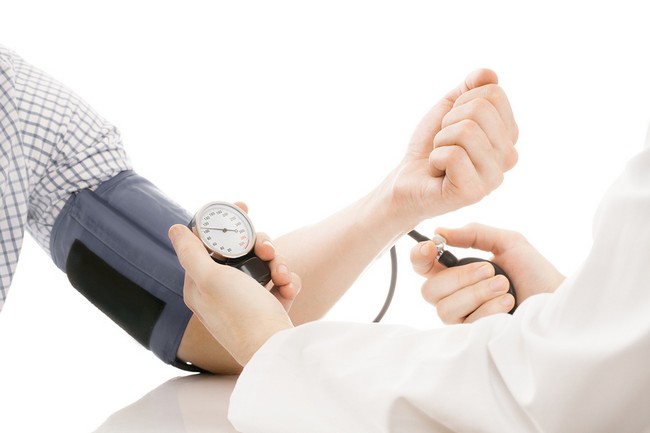- Make It Yourself Lavender Heart-Shaped Bath Bombs!
- 20 Things You Never Knew About “Down There”
- 12 Best Foods For Those Suffering From Arthritis Pain
- 12 Personal Hygiene Mistakes Almost Everyone Makes (Mom Never Told You About #4!)
- 15 Medicinal Plants And Herbs From The Cherokee People
- 12 Mind-Blowing Benefits Of Drinking Coconut Water During Pregnancy
- 12 Outstanding Winter Foods That Won’t Fatten You Up Like A Christmas Turkey
12 Of The Best Remedies To Reduce High Blood Pressure Naturally, No Pills, No Sweat!

Photo credit: bigstock.com
Hypertension is a serious health problem with serious health consequences. Most people with hypertension end up having heart disease, kidney failure, heart attacks, or strokes. A normal blood pressure reading is 140/90 mm Hg. Anything higher than this is considered to be above average.
People who have a sustained high reading over a certain time period are officially diagnosed as having hypertension or high blood pressure. Some of the contributing factors of hypertension are stress, birth control pills, kidney disease, and a high sodium diet, lack of exercise, obesity, genetics, pain relievers, and adrenal disease.
Most doctors will prescribe medications that help to control high blood pressure, but these have some annoying side effects, such as constant dizziness, and must be taken as long as you live.
If that doesn’t sound like a pleasant prospect, you will be happy to note that most people find that they can control their blood pressure through completely natural remedies.
Want to lower your blood pressure naturally? Keep reading!
1. Reduce and Manage Stress
Chronic stress is an important factor when it comes to hypertension. Even occasional stress can lead to high blood pressure when people react to it through excessive drinking, chain smoking, and overeating or indulging in unhealthy foods.
Think about what causes you stress in your life. Once you identify it, you can figure out ways to reduce or eliminate certain stressful people or situations in your life.
For things that you cannot remove from your life, you can learn ways of dealing with them. Try yoga and/or meditation. Get therapy to help talk about and find solutions to some of your stressful situations or the ways in which you handle it.
2. Lemons
Lemon juice helps to keep the blood vessels flexible and soft. By removing the rigidity from the blood vessels, the blood pressure levels will come down. You can lower your chances of complete heart failure by consuming lemon juice on a regular basis. The vitamin C in lemon juice is also a powerful antioxidant, which helps to neutralize free radicals and supports the immune system. All it takes is the juice from one lemon added to a glass of water. Consume this each morning, on an empty stomach.
3. Reduce Your Salt Intake
Even a very small reduction in your sodium consumption can reduce your blood pressure by as much as 2 to 8 mm Hg. Although the effects of salt on blood pressure varies from person to person, for most people, a sodium level of less than 2,300 mgs each day is considered to be safe. However, if you suffer from hypertension, lowering your salt consumption to no more than 1,500 mgs each day can help to drastically reduce your blood pressure, especially if you are in any of the high risk groups that tend to have sensitivity to salt such as:
- Those over 50 years of age
- African Americans
- Those with chronic kidney disease
- Those with diabetes
Read food labels and choose low-sodium options. Eating fewer processed foods is an even better alternative. Sodium occurs only in very small amounts. Almost all of the sodium found in food is added when they are processed. Use one of the many salt alternatives in the spice aisle of your supermarket that use a wide variety of spices to give food flavor rather than relying on salt.
Continue to Page 2


































Chris Stroh
Nov 18, 2017 at 7:54 am
Forgot Oatmeal is a great breakfast choice if you have high blood pressure, but oat bran can provide even more health benefits, since it’s higher in fiber, which helps to lower blood pressure and improves digestive health. This low-sodium food can be prepared as a hot cereal and topped with fruit or used in pancakes.
Fiber softens stool.
Vinegar great health benefits.
Moderation in your diet is a must.